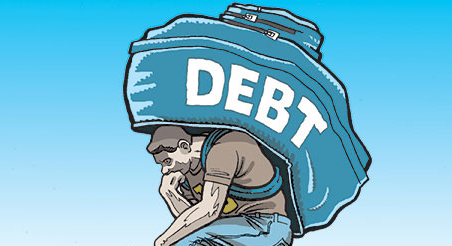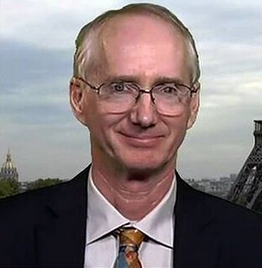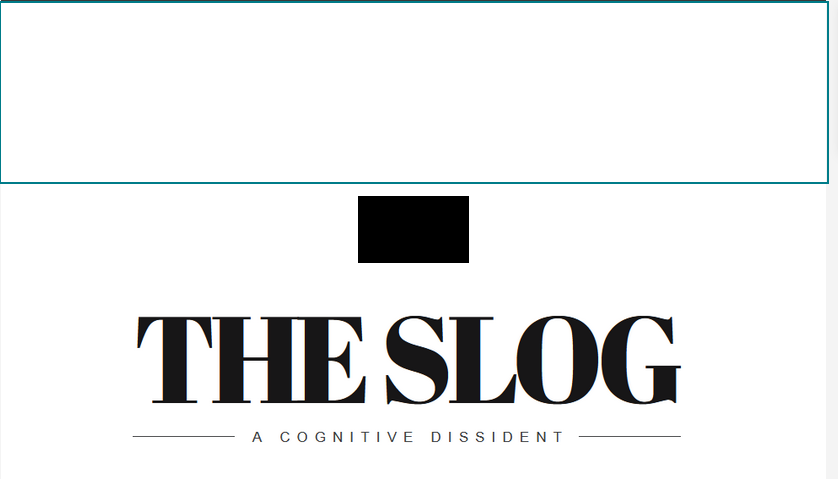The Great Reckoning cometh

I wrote these words to a valued pen-friend the other day:
‘The internet is, in so many ways, a liar's charter. What I've tried to give you tonight is absolute truth about Who I Am - as far as I can do that....because of late, I have found genuine definition of myself slipping away somewhat.
'Loneliness is not caused by being alone. Loneliness arrives when one becomes a cultural outsider. I don't belong in this Century of global civil war, lockstep ideology, dishonest propaganda, unaccountable responsibility and rough justice. Is the US any longer a genuine Nation in the context of Charlie Kirk's Assassination? Can the UK remain a Nation in the light of illegal, extremist immigration? Can an EU ruled by Commissioner dictation ever be a credible example of personal liberty?’
"I don’t belong in this century" is something I find myself saying almost every day.
Being out of one’s Time is – believe me - as lonely as it gets.
But there is a positive role one can play here: to inform and describe to all those born after 1985 that mutuality of purpose was a majority view before the greed of 1980s materialism and then neoliberal monopolism set out to deny that purpose as the real Natural Order of Things.
Some will dismiss this as ‘nostalgia’. It isn’t nostalgia, it’s history - and it needs to be retold. Those who ignore history’s mistakes are doomed to repeat them.
I get nightmares quite often now, during which I am required to perform various unpleasant or silly tasks in order to prove who I am, and why I’m not entitled to stuff unless I fill in forms, keep confirming my exact location and use the latest hip-hop-happening gizmos, hardware and avoid the Third World, otherwise this or that service or app will not be supported or cannot be downloaded.
Given the real planet we inhabit - where the pressure to update, verify, remember passwords and accept stricter methods of signing in is ever-present - having such bad dreams is hardly surprising. The day after waking up covered in sweat some weeks ago, I wrote this:
Last night I dreamt of everlasting guilt - of evidence against me falsified,
and Transbot Guardians rising from the silt of human soul-placentae long decried.
Given the elite enthusiasm for AI, transhumanism and auto-mendacity, are those lines really inappropriate?
Somewhere between 31 and 36 per cent of First World humans no longer trust secret State activities, unelected agents, bureaucrats, tax collectors, bankers, journalists, online ISP promises, pharmaceutical data, fiscal borrowing levels, gdp stats or insurance companies.
Such a lack of trust is incredibly dangerous….and a very high percentage of the electorate’s doubts, fears and cynicism focus on the subject of debt in general, and the debt to GDP ratio in particular.
Because of debt created by waste, greed, mad ideology and neocon spending incontinence, what's heading our way is a debt disaster way beyond the scale of anything humanity has ever faced.
There is a leading light, however, when it comes to the evidential analysis of a uniquely disastrous outcome. Charles Hugh Smith writes a hugely influential substack offering insights into just how important a turning point the Present Day is in our species history. His latest post is on the ball about Why Debt is Different This time.

I urge you all to read the post in full….but hope that these extracts will whet your appetite:
'...the last crisis was World War II (1941-1945)....If we compare these previous periods of discord/crisis to the present, two things stand out:
1. The buffers of credit that were available in those eras no longer exist today.
2. The social trust in institutions that enabled a coherent systemic response to those crises has eroded.....Unfortunately for us in the present, social trust has eroded, and we now live in an era of low social trust.
This has consequences. One analogy is that institutions act as referees in hotly contested political-cultural battles. Elections offer one avenue of change, and institutions such as Congress are designed to seek middle ground, or failing that, express the wishes of the majority within the guardrails of the Constitution.
If the populace no longer feels the refs are fair, or willing to impose limits on opponents' conduct, then society slips deeper into the disintegration zone, where people feel that public and private institutions have failed by putting self-interest ahead of the public's interests.....
'....On the fiscal front, the situation is equally bleak....Let's say that debt can double the rate of inflation if it's being invested productively. That would put today's total debt at $30 trillion.
But total debt isn't close to $30 trillion; it's $104 trillion and climbing, suggesting 70+ trillion is "excess debt." As for all this borrowed money being invested productively--given "waste is growth" planned obsolescence and rampant asset appreciation / speculation, it seems obvious that most of this borrowed money was consumed by ephemeral products and services or squandered chasing asset bubbles.
What's been lost: social trust and the financial buffers of credit.
Why this time is different: we have neither social nor financial buffers to help us through the disintegration phase.'
Charles Hugh Smith's full analysis is brilliant and terrifying at the same time. So don't say nobody warned you.
What we have here is a classic case of a bloke who has learned from a careful study of the past in order to inform those who will be dealing with a future of unprecedented chaos and entropy.
???????????????????????????????????????????????????????????????????????????????????????
Meanwhile, the Google AI overview of the fiscal and financial risks we face gives one a clear view of what the four per cent's excuses are going to be:
'The next financial crisis could be triggered by factors like the increasing costs and unavailability of insurance in climate-vulnerable areas, a rise in speculative asset bubbles, or systemic risks building in non-bank financial institutions. A specific trigger might be a series of large, uninsurable climate-related disasters that disrupt property markets, leading to mortgage lending issues and broader economic instability.'
'Climate vulnerable areas', 'systemic risks in non-bank financial institutions', 'uninsurable climate-related disasters disrupting property markets', 'broader economic instability'....yeh, right.

"Who knocked down the Walls of Jericho, banker-boy?"
"Please sir not me sir.... it was a big Tsunami what done it, 'onest ter God sir"
